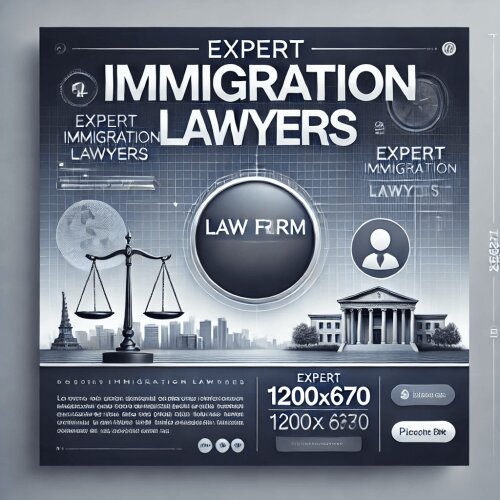Best White Collar Crime Lawyers in Mississippi
Share your needs with us, get contacted by law firms.
Free. Takes 2 min.
Or refine your search by selecting a city:
List of the best lawyers in Mississippi, United States
About White Collar Crime Law in Mississippi, United States
White collar crime refers to non-violent, financially motivated offenses typically committed by individuals, businesses, or government officials. In Mississippi, these crimes often involve deceit, concealment, or abuse of trust for financial gain. Common white collar crimes include fraud, embezzlement, bribery, identity theft, money laundering, and insider trading. These offenses can be prosecuted under both Mississippi state law and federal law, depending on the circumstances and scale of the alleged misconduct.
Why You May Need a Lawyer
Facing allegations of white collar crime in Mississippi can have serious legal and personal consequences. You may require legal help if you encounter any of the following situations:
- Being investigated or questioned by law enforcement or regulatory agencies about financial transactions
- Receiving a grand jury subpoena or a summons for documentation
- Accusations from an employer or business partner of financial impropriety or theft
- Involvement in business activities that become subject to regulatory scrutiny
- Notice of a pending audit or review by state or federal agencies
- Charges being filed against you for fraud, embezzlement, or similar offenses
Even if you believe your actions were legal, the complexity of white collar crime law means you should seek professional legal advice to protect your rights and interests.
Local Laws Overview
Mississippi enforces white collar crime laws through several statutes and regulatory codes. Key state statutes address crimes such as:
- Embezzlement: Under Mississippi Code Section 97-11-25, embezzlement by employees, officials, or fiduciaries is prohibited and can be a felony depending on the value involved.
- Fraud: Various statutes cover acts of false pretenses, securities fraud, insurance fraud, and healthcare fraud. Penalties often include fines and imprisonment.
- Forgery: Mississippi law criminalizes the falsification of documents, checks, or signatures with the intent to deceive.
- Bribery and Corruption: Laws specifically address bribery of public officials and commercial bribery (Section 97-11-11).
- Identity Theft: Unauthorized use of personal identification information is a punishable offense.
Many white collar crimes may also be prosecuted at the federal level, especially if the conduct involves interstate commerce, federal programs, or large sums of money. In these cases, federal agencies like the FBI or IRS may become involved alongside state authorities.
Frequently Asked Questions
What is considered a white collar crime in Mississippi?
A white collar crime typically involves financially motivated, non-violent offenses such as fraud, embezzlement, bribery, and forgery, often committed in business or professional settings.
Can I be charged under both state and federal law in Mississippi?
Yes, some conduct may violate both state and federal laws. Dual prosecution is possible, especially if the alleged crime involves interstate transactions or federal programs.
What are the possible penalties for white collar crime in Mississippi?
Penalties can include fines, restitution, probation, community service, and imprisonment. Felony convictions carry more severe consequences, including longer prison sentences.
What should I do if I am under investigation for a white collar crime?
You should seek legal advice immediately. Do not speak to investigators without an attorney, as anything you say can be used against you in court.
Is it possible to resolve white collar crime charges outside of court?
In some cases, charges may be resolved through plea bargains, settlements, or diversion programs. An attorney can negotiate on your behalf for the best possible outcome.
Will a conviction for white collar crime affect my future employment?
Yes. A conviction may result in a permanent criminal record, limiting your future employment, licensing, and educational opportunities.
Are businesses or corporations liable for white collar crimes in Mississippi?
Yes. Companies can be held criminally or civilly liable for the actions of their employees or agents under certain circumstances.
What is restitution in white collar crime cases?
Restitution is a court order for the defendant to repay victims for financial losses resulting from the crime.
How long can prosecutors wait to bring white collar crime charges?
Statutes of limitations vary by offense but often range from three to five years. Some crimes, like certain types of fraud, may have longer or no limitations under federal law.
Can I clear my record after a white collar crime conviction in Mississippi?
Expungement is available for some offenses and under certain conditions. An attorney can advise if you are eligible to have your record sealed or expunged.
Additional Resources
Here are organizations and state agencies that can help provide information regarding white collar crime in Mississippi:
- Mississippi Attorney General's Office - Offers information and guidance about fraud and economic crimes.
- Mississippi Department of Public Safety - Provides resources for reporting fraud and financial crimes.
- Federal Bureau of Investigation (FBI) - Jackson Division - Investigates federal white collar crime offenses.
- Mississippi Bar Association - Directory of licensed attorneys specializing in criminal defense and white collar crime.
- Local Crime Stoppers - Accepts anonymous tips about suspected white collar criminal activity.
Next Steps
If you are facing allegations or have concerns about white collar crime in Mississippi:
- Do not attempt to handle investigations or charges on your own. Statements or actions can have serious consequences.
- Contact a qualified Mississippi criminal defense attorney with experience in white collar crime as soon as possible.
- Gather and safeguard any documentation or communications related to your case for review by your attorney.
- Follow your attorney's guidance on responding to investigators, attending interviews, or appearing in court.
- Stay informed about your rights and responsibilities throughout the legal process.
Taking swift and informed action with the help of a legal professional can significantly impact the outcome of your case. If you need legal assistance, consider reaching out to an attorney or one of the organizations listed above.
Lawzana helps you find the best lawyers and law firms in Mississippi through a curated and pre-screened list of qualified legal professionals. Our platform offers rankings and detailed profiles of attorneys and law firms, allowing you to compare based on practice areas, including White Collar Crime, experience, and client feedback.
Each profile includes a description of the firm's areas of practice, client reviews, team members and partners, year of establishment, spoken languages, office locations, contact information, social media presence, and any published articles or resources. Most firms on our platform speak English and are experienced in both local and international legal matters.
Get a quote from top-rated law firms in Mississippi, United States — quickly, securely, and without unnecessary hassle.
Disclaimer:
The information provided on this page is for general informational purposes only and does not constitute legal advice. While we strive to ensure the accuracy and relevance of the content, legal information may change over time, and interpretations of the law can vary. You should always consult with a qualified legal professional for advice specific to your situation.
We disclaim all liability for actions taken or not taken based on the content of this page. If you believe any information is incorrect or outdated, please contact us, and we will review and update it where appropriate.
Browse white collar crime law firms by city in Mississippi
Refine your search by selecting a city.












